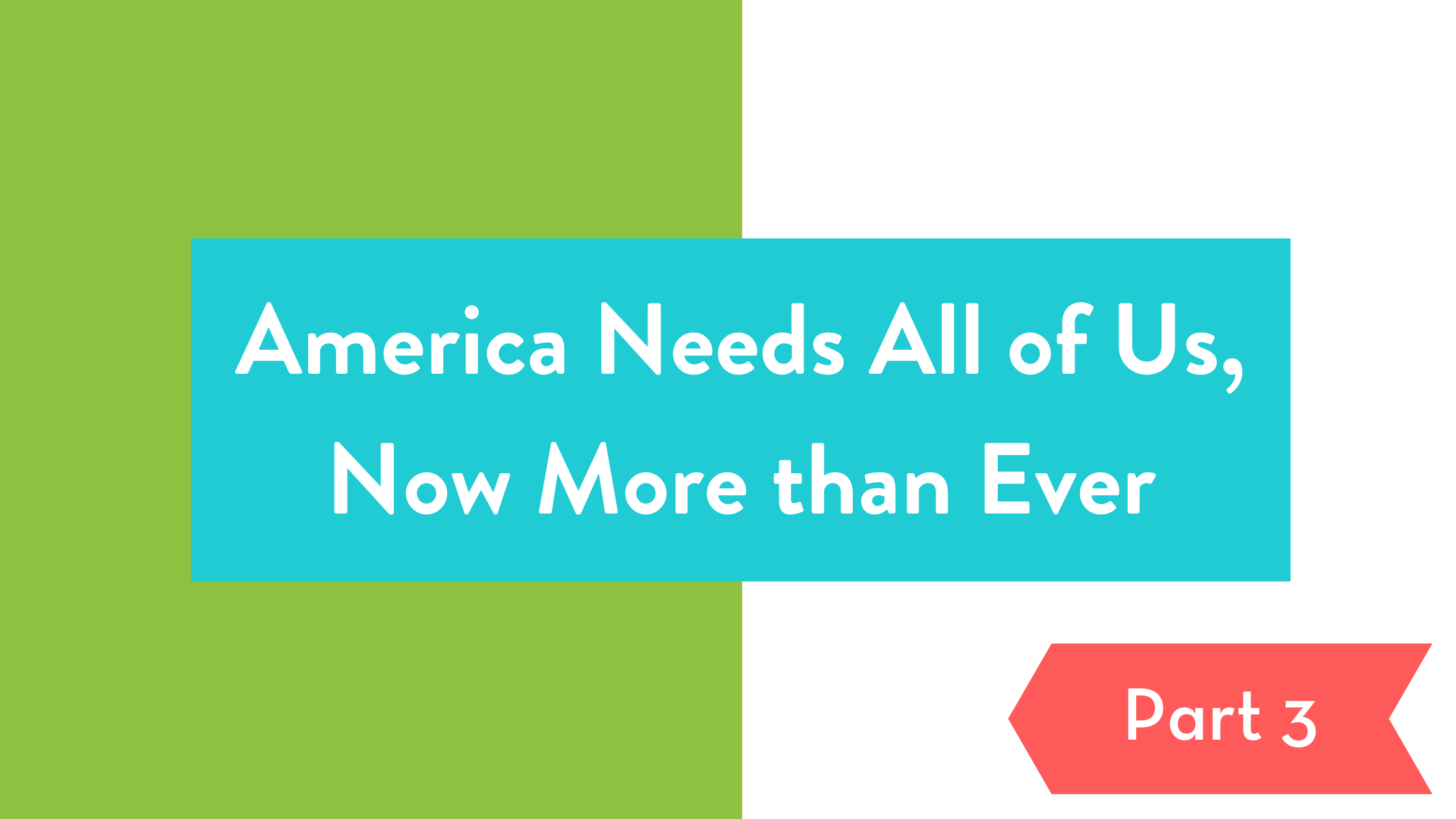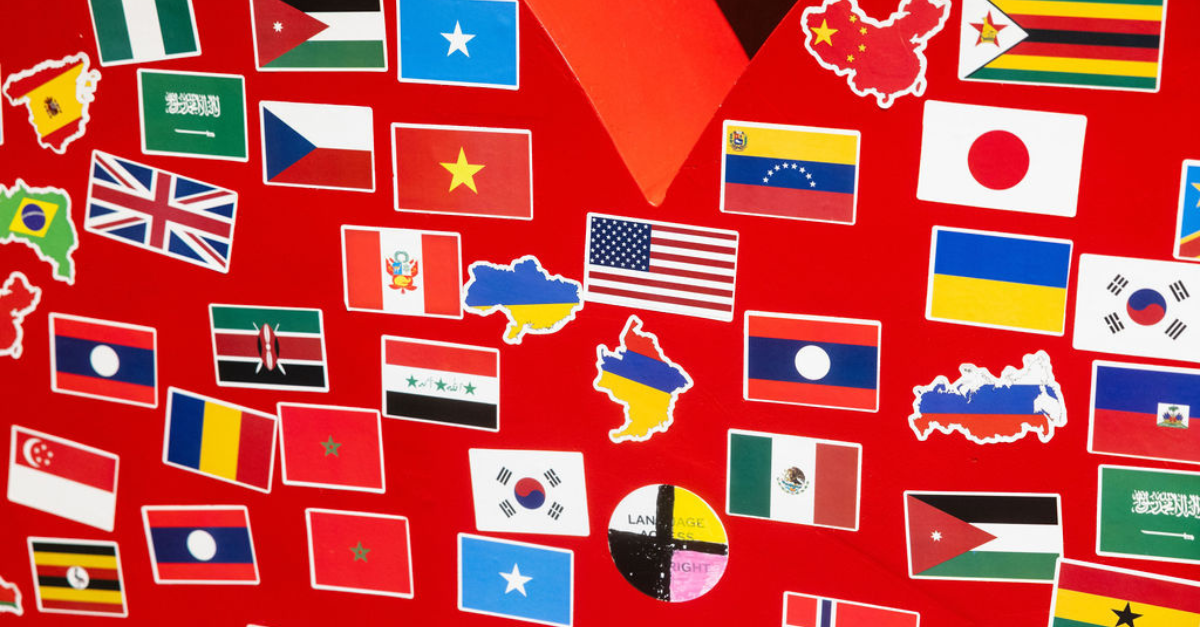
America Needs All of Us, Now More Than Ever: Part 3
America Needs All of Us, Now More Than Ever is a three-part blog series to highlight excerpts of the America Needs All of Us toolkit created by Welcoming America in 2015 to provide practical messaging tools and strategies that address people’s fears, anxieties, and prejudices head on about immigration and demographic changes in America. While the initial focus of this toolkit was on racial equity through an immigration lens, we believe its key messages on unconscious bias, overcoming fear, and racial justice in inclusion work remain more relevant than ever. Click here to read part one and part two.
America Needs All Of Us Part 3: Specific Advice for People Working on Overcoming Fear of Difference and Unconscious Bias:
The America Needs All Of Us toolkit stems directly from a body of work conducted by Dr. Drew Westen, a professor in the Departments of Psychology and Psychiatry at Emory University and the founder of Westen Strategies, LLC, a strategic messaging consulting firm to nonprofits and political organizations. In addition to developing and testing the messages that formed the basis of the recommended messaging regarding the benefits and values of ethnic and racial diversity, he offers some specific advice for people working on overcoming fear of difference and unconscious bias:
1. To disarm unconscious prejudices, we need to speak to shared values, and use the right analogies.
2. Consistent with recent research, “diversity” is no longer a dirty word, but it helps to contextualize it (e.g., as synonymous with what used to be called the “melting pot,” a term that we do not recommend because it erases differences, which is not the goal).
3. “Multiculturalism” is too abstract and not as strong; rather, it’s better to create images of people standing shoulder to shoulder.
4. We should never speak about prejudice without distinguishing our level of consciousness; failing to do so activates unconscious stereotypes and creates inaccurate and polarizing discussions.
5. Effective messages return to our shared conscious values as Americans. Speak to the progress we have made before speaking of how far we still need to go.
6. Use emotionally compelling, concrete examples or analogies. Examples and analogies that work best come from science and less from everyday life; they are less threatening.
7. Populist language cuts across racial lines and makes “us” inclusive.
8. Speak of unconscious prejudice, not unconscious racism, to avoid defensiveness and widen the scope (e.g., to unconscious prejudices involving gender and sexual orientation).
9. Do not use academic language or jargon.
10. Turn “them” into “us,” through message and syntax; e.g., use phrases such as “whether white, Black, or Brown, we all…”; avoid third-person constructions (“they” and “them”).
11. Understand “priming” and order effects; e.g research showed a difference in ordering “white” before Black and Brown or African American and Latin American. It’s also more effective to address progress before continued problems.
12. Acknowledging that prejudices are not limited to white people reduces defensiveness.
To read more of America Needs All Of Us, download the PDF here.



